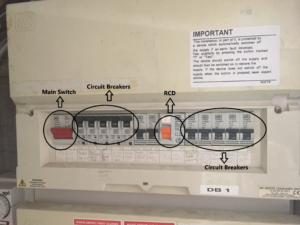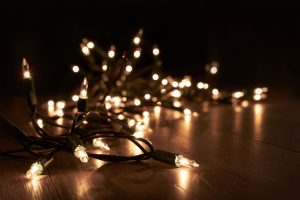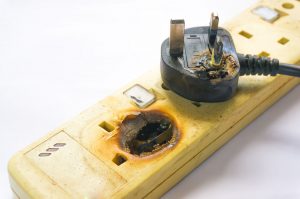In these strange times, we are all spending a lot more time at home and in the garden (if we are lucky enough!) So we thought we’d give you a mini guide to something we all have in our homes and probably take for granted that they’re keeping us safe.
Fuse Boxes – also known as Consumer Units – are used to control and distribute electricity around our homes.
You probably know where your fuse box is located in your home. It is important in case we ever need to turn the electricity off in an emergency.
A fuse box contains three thin gs:
gs:
- Mains Switch
This allows you to turn off the electricity supply, and so should be easily accessible. Some homes will have more than one mains switch if there is more than one fuse box.
2. Circuit Breakers or Fuses
Most homes built after 1960 will have circuit breakers. These are automatic protection devices that switch off a circuit if they detect a fault. Despite being a similar size to fuses, they offer more precise protection. If they “trip”, you can reset the switch after finding and correcting the fault.
Fuses have a piece of special fuse running between two screws. If a fault occurs, or in the event of an overload, the fuse wire will become hot and melt. The melted fuse then breaks the circuit, disconnecting it and keeping you safe.
3. RCDs
RCDs (residual current devices) are switches that trip a circuit under certain conditions and disconnect the electricity supply. If it detects an imbalance in current, or electricity flowing down an unintended path, it will switch the circuit off, reducing the risk of death or serious injury from an electric shock.
If you have a wooden back on your fuse box, a mixture of fuses and circuit breakers, or no RCD protection, then you might benefit from upgrading to a new consumer unit that would offer you more protection. It is also worth considering if you are planning an extension or an improvement project or your fuse box is overloaded.
A professionally installed consumer unit by a certified electrician will improve your electrical safety as well as put your mind at rest by checking the integrity of the existing circuits in your property.
Fulcher Edwards carries out all types of electrical services, including fuse box replacement in homes in and around St. Albans. Why not give us a call us today for a free quotation on 01923 616985 or drop us an email on our Contact Us Page.




